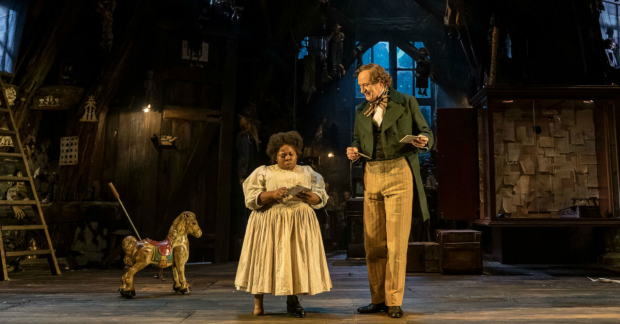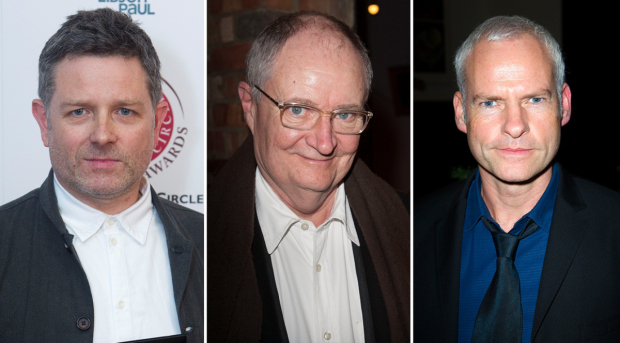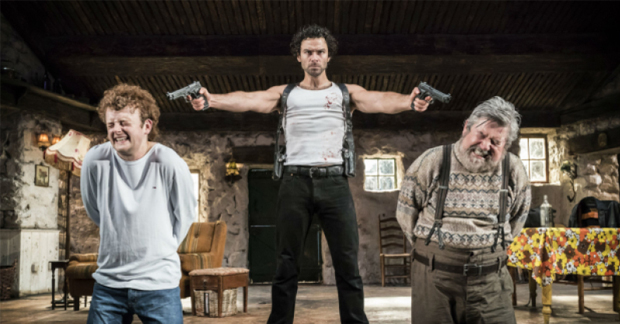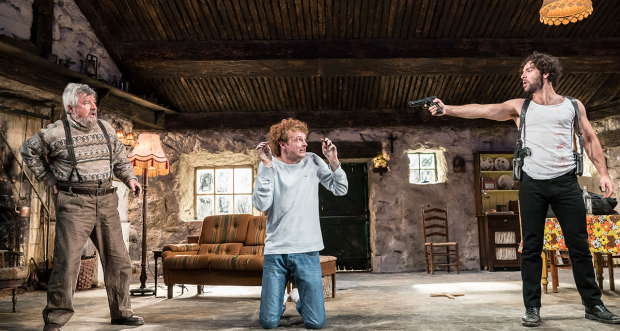Review: A Very Very Very Dark Matter (Bridge Theatre)
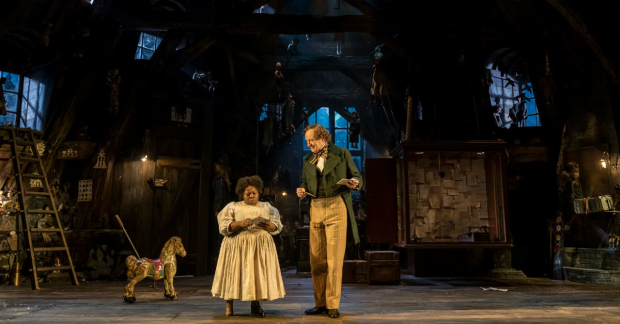
© Manuel Harlan
Martin McDonagh is a great writer. The Pillowman is great. Hangmen is great. In Bruges, Seven Psychopaths and Three Billboards Outside Ebbing, Missouri are all great. But A Very, Very, Very Dark Matter, his new play at Nick Hytner and Nick Starr's year-old Bridge Theatre, isn't great at all. In fact, and it feels weird to say this about a chap who recently received two Oscar nods for Three Billboards, it's really quite bad. Amateurish even.
It's built around a premise that McDonagh's toyed around with before in other work – a famous writer, who doesn't actually produce his own stuff, but cruelly forces someone else to do it for him. In this case, we're in nineteenth-century Denmark, and Hans Christian Andersen is keeping a lame, black, Congolese pygmy – his questionable terminology – in a constricted mahogany box in his attic. Yep, you read that right: a Congolese pygmy in a box. All Andersen's stories – The Little Mermaid, The Ugly Duckling – were, in McDonagh's play, written by her instead.
It is, perhaps, a fruitful premise – there's plenty of scope for an interrogation of colonialism, racism, and the authenticity of authorship. But all that is entirely squandered, thanks to a bewildering plot that goes both nowhere and all over the place at the same time. From the Belgian Congo, to a sycophantic literary launch, to Dickens' London. There's even a strange time-travel plotline plonked in. It is, dramaturgically speaking, a complete mess. It smacks of something spaffed out to fill a predesignated spot in the Bridge's programme.
What makes McDonagh's work so good, usually, is his combination of drum-tight, viciously ironic plotting and his jet-black, matter-of-fact humour in absurd situations. Neither is present here. The plot's scattergun and silly, and the genuine jokes are few and far between. Not for the want of trying, either. There's a real sense that McDonagh is trying really hard to make you laugh, and that's a major turn-off.
And without the brutal hubris or the brutal humour, the problematic nature of McDonagh's play, often excused in his other work, has nowhere to hide. The racial stereotyping, the Tarantino-esque violence, the wilful subversion of much-loved literary figures – it doesn't feel cheeky or charming, it feels offensive and irresponsible and, well, childish. Like a kid picking up dangerous objects and toying around with them just because he can.
No-one is at the top of their game here, truth be told. The ever-reliable Jim Broadbent is fun but basically frivolous as a mincing, casually cruel, comically stupid Andersen, Phil Daniels is decent as a potty-mouthed Dickens, and Johnetta Eula'Mae Ackles has gravitas as Andersen's story writing space, who he insists on calling Marjory. But these performances are swallowed up by the slackness surrounding them. Matthew Dunster's production doesn't know where to go or what to do on Anna Fleischle's puppet-filled Santa's grotto of a set.
A crowd of London literati hooted and howled through opening night, but this is a real disappointment, and a real dud in an almost spotless track record for the Bridge. One of Andersen's more famous tales, The Emperor's New Clothes, springs readily to mind. McDonagh has stood up on the South Bank, and everyone can see he's starkers.



